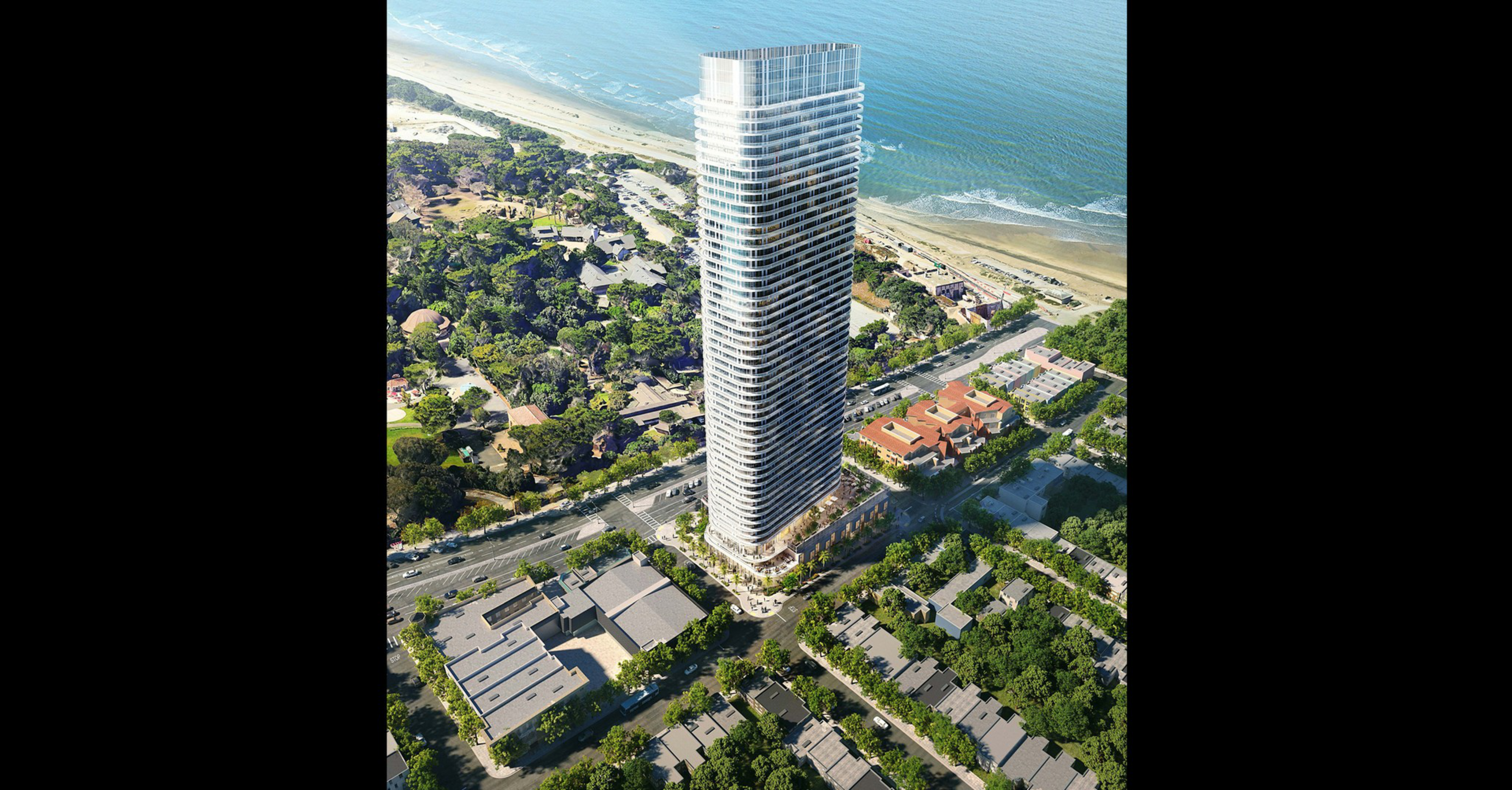Developers behind a proposed 50-story tower in the Sunset that city officials rejected last month for being “categorically out of compliance” have sued the city, arguing San Francisco is misinterpreting state law.
The lawsuit (opens in new tab)—filed Thursday in San Francisco Superior Court—argues that the 589-foot apartment tower and retail complex at 2700 Sloat Blvd. meets the requirements under California’s Density Bonus Law, which allows developers to exceed standard density requirements in certain circumstances.
The suit goes on to claim that the city misinterpreted and applied the density bonus law to the project, adding that the proposal was not a final blueprint but met objective zoning standards and represented a “realistic development capacity of the site.”
John and Raelynn Hickey, the developer couple behind the project, claim in their lawsuit that a proposal to construct six buildings to make up the tower was “hypothetical and meant only to establish the realistic development capacity of the site. The number of buildings was not a project detail.”
Late last month, the city’s Board of Appeals unanimously upheld a decision to block the controversial proposal.
The extreme height of the tower compared with the rest of the neighborhood, which mostly consists of two- and single-story buildings, left many to wonder if the developers actually intended to build the project.
In May 2022, the Planning Department notified the developers of multiple issues with a more modest proposal for a 12- to 13-story project. Three months later, the developers came back with a plan four times taller.
Jen Kwart, a spokesperson for the City Attorney’s Office, said the agency had not been served with the lawsuit as of Thursday evening.
“Once we are served with the lawsuit, we will review the complaint and respond accordingly,” Kwart said.
